One day there was school and the next day the classrooms were closed.
The class of 2023 were high school and college freshmen, still getting used to their new normal. Suddenly, nothing was normal.
Vacated schools became meal- and laptop-delivery hubs. Dorms closed. Siblings clustered at the kitchen table, headphones on. They tried to follow a teacher who had become a square on a screen. They lost learning so fewer people lost lives. Even small children learned to say, “You’re muted.”
They were teenagers and 20-somethings, and their lives had been muted.
No staying after class to ask a quick question. No flirting with the cute classmate. College students hungry for independence found themselves trapped at home.
When they did return to the classroom, instead of proms and activities, they had masks and nose swabs. School, for some the only safe place, wasn’t safe anymore. Still, they did what it took to keep going.
The USA TODAY Network spoke with more than a dozen seniors from colleges and high schools across the nation. Some were celebrating their graduation. Some hadn’t made it there. They talked about their depression, their loneliness, their isolation. Also, the talents they discovered, their pride in earning a degree and their hopes for the future.
Three years later, the federal emergency is over. But these students are, still, the class of COVID.
– Danielle Dreilinger, The American South
DOVER, Del. – Eliana Rothwell had never seen Colorado from this angle.
From the cockpit of her neighbor’s twin-engine plane, Earth stretched before her, speckled with homes and buildings, framed by mountains that had always seemed to own the horizon.
“I fell in love with seeing the world from a new perspective,” remembers Rothwell, then 20. College was a part of her long-term plans, but she hadn’t decided what to study until she held those controls.
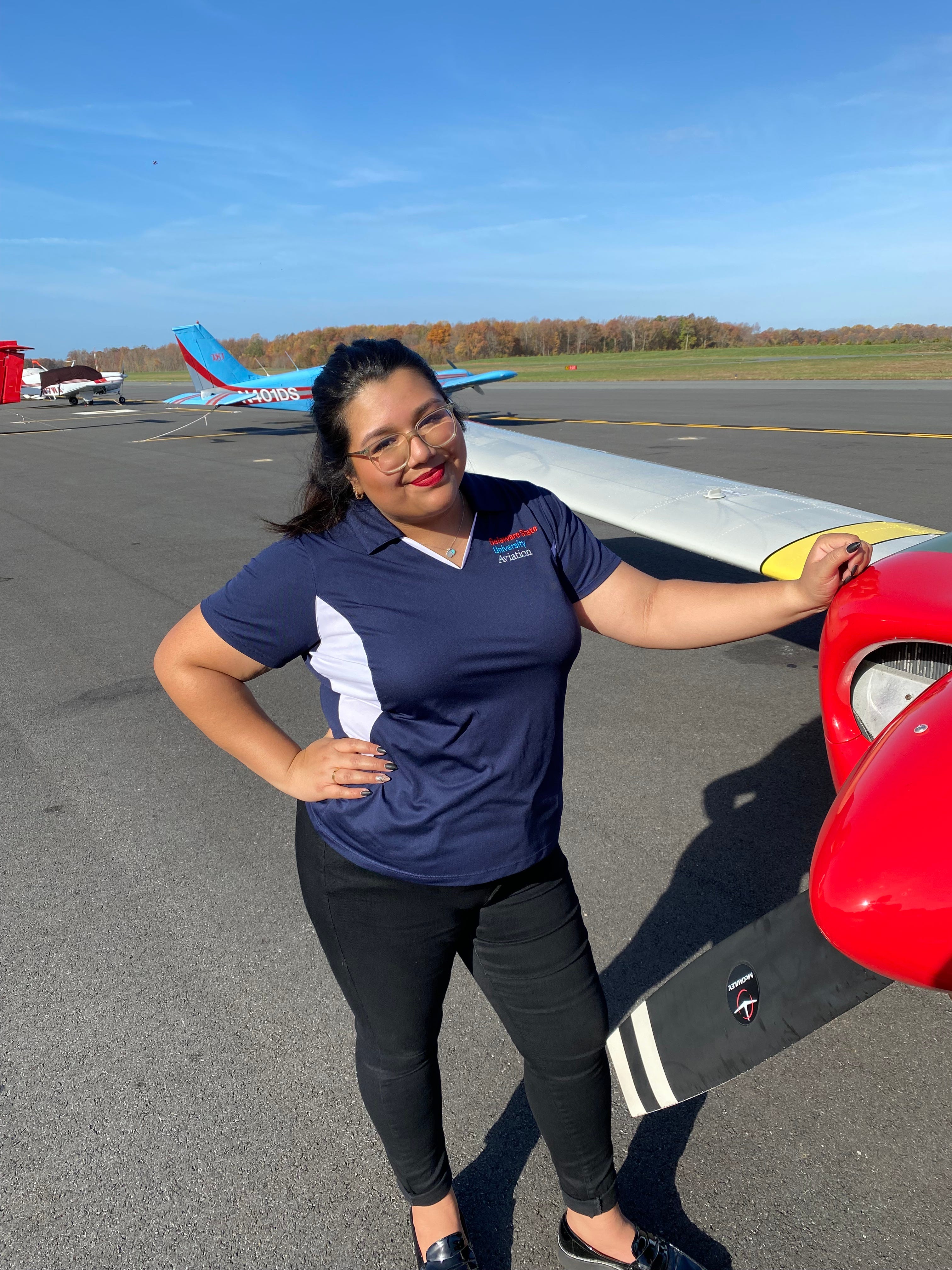
Image courtesy of Eliana Rothwell
As a child, Rothwell moved to a small, majority-white town in that Rocky Mountain state from Mexico. She craved a college experience with more people who looked like her. Landing on Delaware State University, a historically Black institution, she crossed the country in her Subaru to enroll in its aviation program.
Then came COVID.
Shutdowns meant her classroom – planes – were grounded.
“And you’re like: ‘OK, I’m working, I’m progressing, but what actually is going to happen?’ Nobody knows.”
Rothwell used the time to launch Delaware’s first chapter of Women in Aviation. She stepped onto the graduation stage in May with the largest class of women in the program’s history.
She has just two flight labs to go and a job waiting with United Airlines. Someday, Rothwell sees herself behind something much larger than her neighbor’s bush plane. Perhaps a 787 Dreamliner.
“Just seeing the progression of when COVID first hit to where we are now,” she says, reliving the uncertainty the pandemic brought, “and having graduation, it’s just like this all-encompassing moment for us.”
– Kelly Powers, The News Journal

YORKTOWN HEIGHTS, N.Y. – Nicole Hartmann has few good memories from high school.
Mostly what she remembers is what didn’t happen: socializing with friends and bonding with her teachers. There was no going to football games, playing softball or staying after school to do homework with friends and hang out on the bleachers.
COVID took it all away.
Tania Savayan/The Journal News
“You go from having to wake up every morning, getting up, seeing your friends, and then just, like, sitting in your bed and doing the work by yourself,” says Hartmann, now a senior at Mahopac High School in the northern suburbs of New York City.
By the time junior prom came along, she says, many of her classmates didn’t go or had few close friends to spend the evening with because the pandemic corrupted their ability to connect with one another. Parents worried about their kids interacting, too afraid of the virus, she says. Some of the few allowed to venture out before school buildings reopened could do so only on the condition they wear masks and keep 6 feet away.
“You forget what people’s faces look like. That was really weird,” says Hartmann, 18.
For all her grievances, she managed to keep up with her schoolwork. And she was still able to make some good memories: She got involved in student leadership and reconnected with her peers when they returned to school without masks. She also joined a child development program through an agency that provides technical education and other specialized programs throughout New York. She’ll study elementary school education on a full scholarship at Manhattanville College in the fall.
Hartmann plans to make college a do-over, “so that, almost, I can make up for what I missed.”
– Diana Dombrowski, The Journal News/lohud of Westchester/Rockland

MILWAUKEE – For several years, Daniel Gutierrez Ayala worked with local attorneys helping immigrants study for their citizenship exams. He would travel around the state giving presentations on their legal rights when interacting with law enforcement.
As someone able to be in the United States as a beneficiary of the Deferred Action for Childhood Arrivals program, it had been a longtime dream to help others like himself.
Mike De Sisti / The Milwaukee Journal Sentinel
But in the pandemic, that all stopped. He was stuck at home, with virtual classes and no outlet for his community work. By the fall of 2021, Gutierrez Ayala, just a few classes shy of graduating with political science and Spanish degrees, slid into depression and a feeling of helplessness.
So he dropped out.
“The pandemic hit, and it was just a complete dismantling of everything that I was becoming,” he says.
He believes that leaving college that year saved his life. He focused inward, taking a pause from carrying the weight of other people’s expectations and struggles. He worked as a manager at a restaurant, finding new sources of joy and motivation.
This spring, Gutierrez Ayala, 23, finally felt mentally ready to finish his degree.
He wanted to return to Cardinal Stritch University, a suburban Milwaukee Catholic school with about 1,300 students. He was encouraged to pull together his materials to reapply, so he could complete his degree this winter.
But in early April, before he could submit his application, a friend sent him a video. The college president was announcing the university’s closure at the end of the spring semester. Among the reasons: declining enrollment and rising expenses, problems the pandemic only worsened.
Gutierrez Ayala was in disbelief.
He is now researching other schools that will accept his transfer credits.
“Unfortunately, it won’t be Stritch, but the goal is to finish and get my degree.”
– Devi Shastri, Milwaukee Journal Sentinel

DES MOINES, Iowa – Mary Arthur did not bother to get out of bed before logging into her high school’s online classes during the fall of 2020.
The then-Lincoln High School sophomore, disinterested in classes and depressed, slept during her first lesson of the day: psychology.
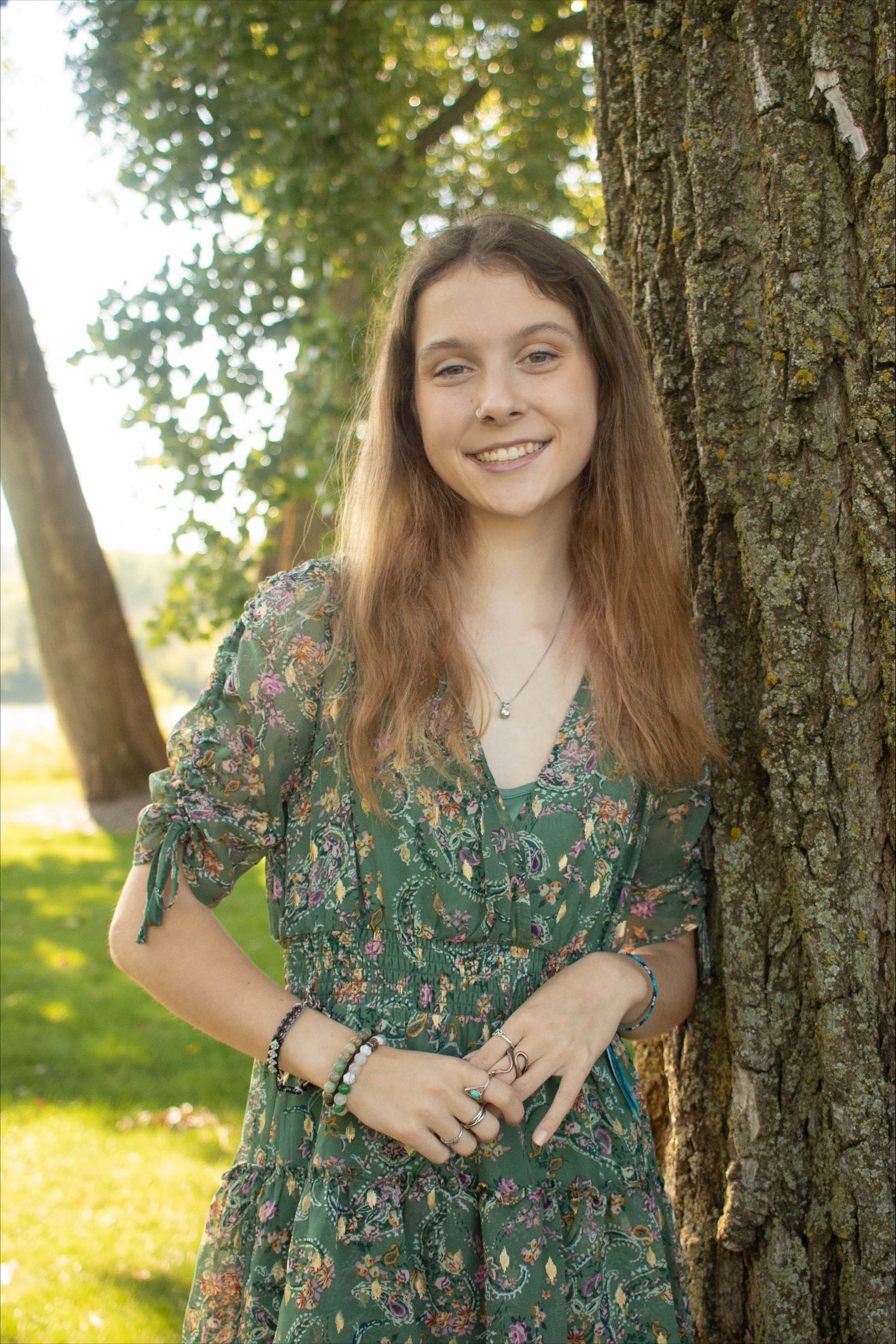
KRS Photography by Kelly Leydens/Special to the Register
“It was just a cycle I fell into of waking up, logging in, and that’s it,” Arthur says.
This was her routine until February 2021, when Iowa schools were required to offer a 100% in-person learning option for families.
Before COVID, Arthur skipped school, was rude to teachers and spent time with people she says were a bad influence on her.
COVID and quarantine changed her.
“Classes are actually very important to go to, and it is the key to succeeding in the future,” she remembers thinking.
When she returned to campus full-time for her junior year, she made new friends, and – at her English teacher’s urging – joined the school’s theater group. Arthur plans to attend Northwest Missouri State University to study agronomy and horticulture.
Despite her personal growth, she says she missed social opportunities, such as football games. Even though Arthur was with her family, months of quarantine left her feeling alone and anxious over whether she had been exposed to the virus.
“The class of 2023 really struggled,” says Arthur, 18. “I feel like most of us feel stuck in our freshman selves and that we are not ready to move on.
“And we are kind of just forced to.”
– Samantha Hernandez, The Des Moines Register

PHOENIX – Ali Gonzalez got through his two part-time jobs, his high school workload and his uncertainty about the future by immersing himself in music.
He blasted songs about love, big trucks and partying on his headphones while changing the oil in cars, making sandwiches at his second job at Panera Bread and studying for his social studies class.
The music reminded Gonzalez, 18, why he is laboring so hard now: to support his family, and one day, have more freedom from work.
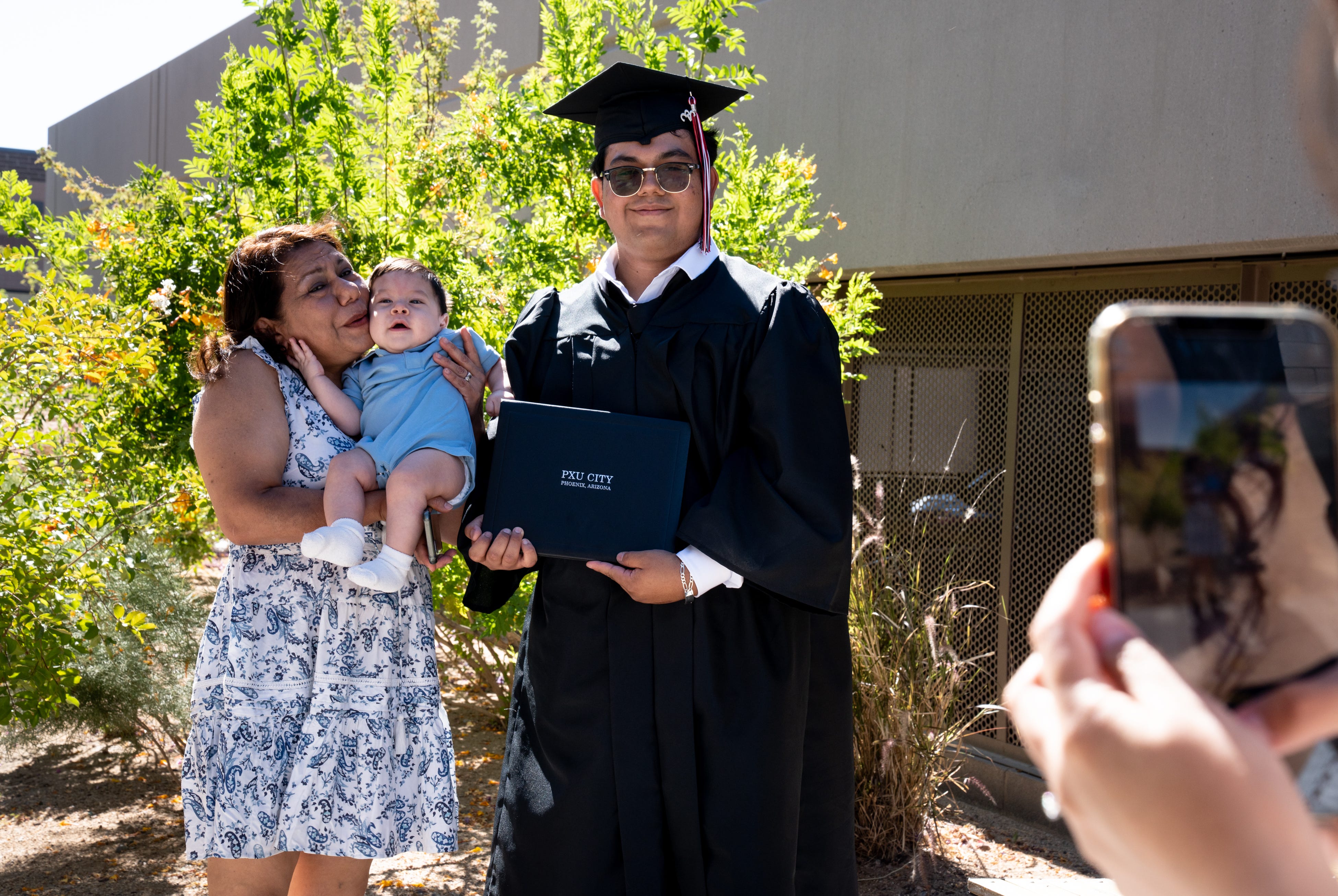
Mark Henle/The Republic
“You get tired working all the time,” he says. “And then you have to go home, do homework, read notes.”
The paychecks go to food and rent. School was important, he knew, but the hours for it were slim. He did his homework after 11 most nights and as late as 2 a.m. if he took on extra shifts.
Despite those difficulties – his long work hours, the pandemic shaking up his relationship with learning and sheer exhaustion – Gonzalez graduated this year.
When the pandemic hit, Gonzalez already was working at the mechanic shop on the weekends. Then the restaurant where his mom worked closed. His family burned through their savings.
Gonzalez started taking on more shifts and missing school, feeling unmotivated staring at a computer screen all day.
By the time his school district returned to in-person learning, he was working 20 hours a week. He was not on track to graduate.
His guidance counselor directed him to a hybrid school she hoped would allow him to get enough credits to get a diploma. The school let Gonzalez mix remote and in-person classes to fit his busy work schedule.
In the future, Gonzalez wants to own an auto mechanic shop. “It’s kind of a passion of mine, working on cars.”
When he does, he’ll make his own hours – and choose the music.
– Yana Kunichoff, The Arizona Republic

GOLDSBORO, N.C. – When Cammy Lowe got tired of working in trucking with men who acted like 2-year-olds, she took a job with actual 2-year-olds.
As she worked in administration at Bright Beginnings Christian Center in Goldsboro, North Carolina, she earned an associate’s degree. That was enough, she decided.
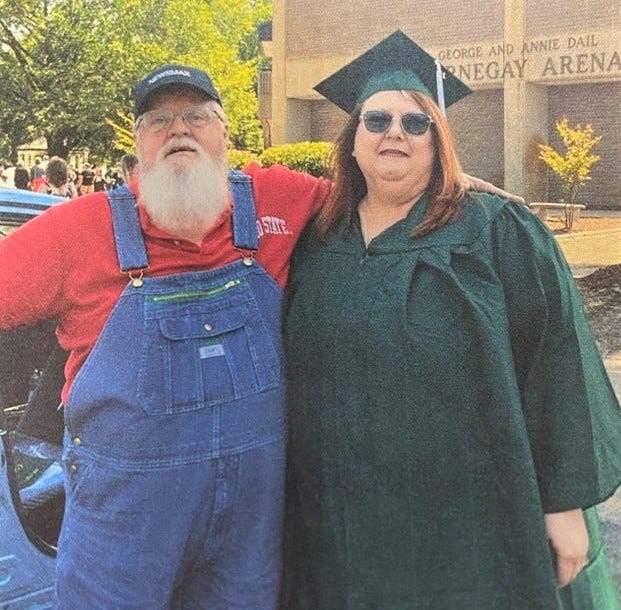
COURTESY OF CAMMY LOWE
Then, in late 2020, the owner offered Lowe the director’s job. It required a bachelor’s degree.
Lowe prayed on it. Her life was full. As co-director, Lowe kept the center going through COVID.
“I’m a mom, I’m a grandma, I’m a friend, I’m a wife,” she says. Her husband is disabled, and a grandson who lives with them has special needs. Her father was ill. She was a devoted church volunteer, cancer fundraiser and crafter who makes memorial ornaments for grieving friends.
“This is where God wants me,” Lowe remembers deciding. At Bright Beginnings. She would have to get her degree.
The pandemic meant her bachelor’s program at the University of Mount Olive was entirely online. At 6 in the morning, at 8 at night, Lowe shut herself in her craft room to attend classes alone.
It was a struggle.
“I’ve always been a face-to-face learner,” Lowe says. “I’ve never been really able to read something and understand it.”
Surrounded by card stock, wreath blanks and glitter, Lowe sought all the help she could find. She talked with her sister and with friends who had gone to college. She reached out to the professors. Some stepped up to meet her drive.
Professor Gail Sasser, for instance. Sasser met with Lowe over Zoom to show videos, demonstrate activities and talk through topics. And to encourage her to keep going.
It’s OK to mess up, Sasser told her. That’s how learning works.
Lowe passed. Sometimes with Cs, but sometimes with As.
On May 6, Lowe, 55, set foot on the Mount Olive campus for maybe the fifth time, to receive her bachelor’s degree. A memorial ornament that she made for her father swung from her mortarboard.
“I’m actually surprised that I was able to do it,” she says. “But I did.”
– Danielle Dreilinger, The American South

MADISON, Wis. – The University of Wisconsin-Madison emptied its dorms in March 2020, instructing students to hunker down at home.
Freshman Isaac Wells-Cage didn’t have a home to go to. His mom was in the hospital. His dad was out of the picture. So he shared an apartment with a friend.
While in some ways his pandemic experience was similar to classmates – he listened to lectures from bed and stuck swabs up his nose for required COVID testing – he says he weathered things differently because of all he had already been through.
Mike De Sisti / The Milwaukee Journal Sentinel
“Those experiences, they’re definitely monumental and they matter,” Wells-Cage says. “But in comparison to what I’ve experienced in life, it’s just, like, another day.”
His mother struggled with schizophrenia, so he lived in a foster home from ages 4 to 8. When he moved back with his mom, their living situation was always temporary − sometimes an apartment, sometimes a homeless shelter.
Wells-Cage grew up in a slice of northwestern Milwaukee where 95% of residents are Black. It’s a place that’s been subjected to decades of redlining, where two-thirds of children live in poverty and has been labeled one of the country’s most incarcerated ZIP codes.
His mom enrolled him in summer reading classes at a local college in middle school. Mentors steered him toward a college preparatory high school. He graduated with top honors and a scholarship to the state’s flagship university.
At UW-Madison, where about 2% of students are Black, Wells struggled with isolation and imposter syndrome. He stopped visiting dining halls because he saw students staring, pointing and recording him through the reflection in the glass windows he looked out as he ate.
Breaks just reminded him of the home he didn’t have.
“There’s a lot other people take for granted,” he says.
Wells-Cage, 21, is leaving college with an engineering degree, a summer internship and a job.
He feels like he made it.
– Kelly Meyerhofer, Milwaukee Journal Sentinel

JENSEN BEACH, Fla. – Four years of shutdowns, virtual instruction and quarantines put Ja’Asia Davis at risk of ending up without a high school diploma.
Davis, 18, needed a passing score on a Florida algebra test required for graduation. She took the class as a ninth grader, but then the pandemic obliterated her freshman year and canceled state testing.
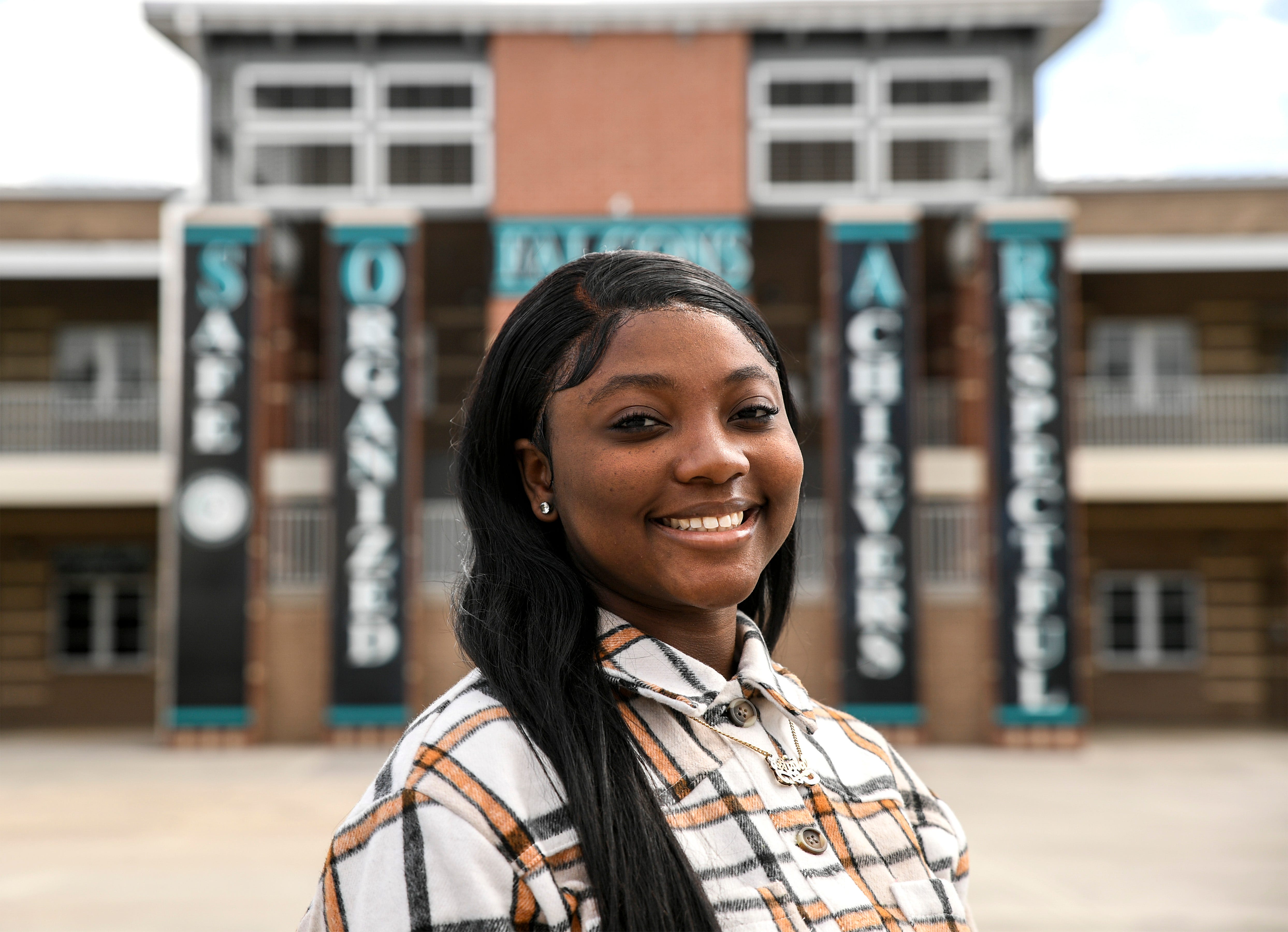
ERIC HASERT/TCPALM
By the time she returned to Jensen Beach High School for sophomore year, Davis had moved on to geometry.
But she still had to pass the algebra exam. So Davis kept taking the state test and the ACT, which also meets Florida’s rules for a diploma, and she kept coming up short, sometimes by only one point. Her grades were good; she just needed to pass the tests.
Davis thought about abandoning her goal of earning a diploma more than once.
“I don’t want to give up because I want to say that I finished school,” says Davis, who wants to be the first in her family to attend college and plans to study nursing at Bethune Cookman University in Daytona Beach.
Davis says she also wants something to show for what she endured, like COVID forcing her cheerleading squad to record virtual pep rallies and wear masks that turned sticky and stinky during practices and games in the Florida heat.
“I don’t want to finish school with just a certificate of completion after the years that we’ve had,” she says. “At the end of the day, it will be worth it.”
Days before graduation, Davis learned she had met all the requirements to get her diploma – including that passing math score.
– Colleen Wixon, Treasure Coast Newspapers

COLUMBUS, Ohio – Bhawana Khatiwada had already overcome religious persecution, life in a refugee camp and not speaking any English.
Then came COVID.
She was 8 when her family left Nepal and she started at an American school. Unable to speak much English and hating cafeteria food, she was miserable. With time, however, Khatiwada says she realized education was the path to a life she never could’ve had in that refugee camp. It was a way to keep her culture and history alive.
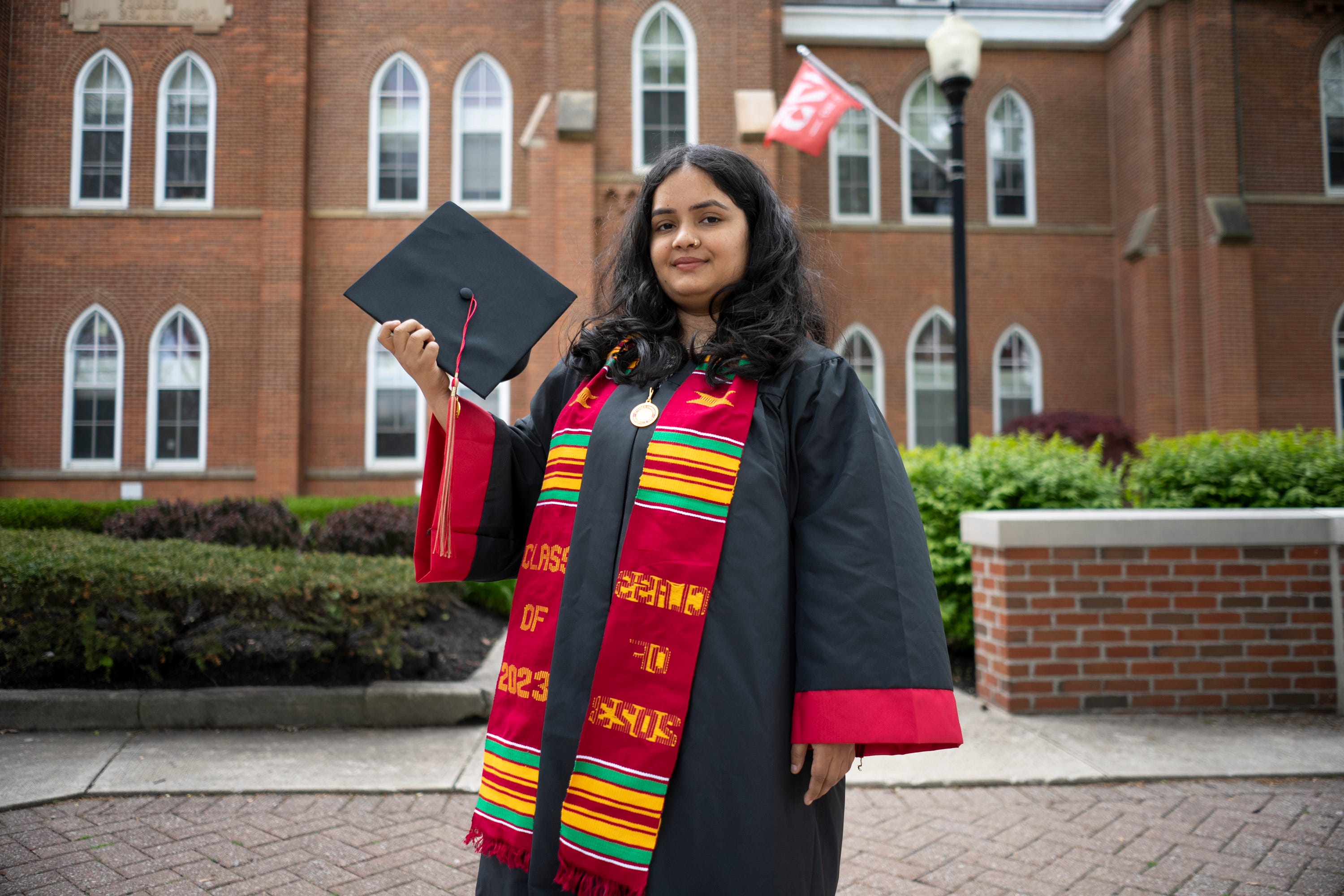
Joseph Scheller/Columbus Dispatch
Fueled by her epiphany, she earned 60 credits taking community college classes during high school. She won a scholarship that covered much of her college expenses.
But COVID cut out having a high school graduation ceremony. And her first year at Otterbein, a small liberal arts college in suburban Westerville, Ohio, left Khatiwada feeling invisible in a sea of faces on Zoom. Adding to her feelings of detachment, her baby brother had open-heart surgery the following year. She wanted to drop out so she could be with him.
“I always knew I would start, but I wasn’t confident I would finish,” she says.
Her family wouldn’t have it.
“They are the ones who kept me going.”
Her older sister helped her apply for federal student Aid. Her older brother and her father drove her to class so she could live at home. Her days on campus sometimes stretched from 9 a.m. to 9 p.m. – computer science classes by day and communication classes at night.
This spring, Khatiwada, 21, became the first in her family to graduate with a bachelor’s degree – two of them. One is in computer science, another in communications. All the credits she earned in high school helped her become an accidental member of the class of 2023, because she finished college early.
She has a job lined up at nearby Denison University in Granville as a program analyst, and she plans to help other first-generation students reach their own dreams.
– Sheridan Hendrix, The Columbus Dispatch

SARASOTA, Fla. – Karolina Paulus, a 19-year-old graduate of Riverview High School in Sarasota, had just moved from Poland for her freshman year of high school when COVID-19 closed schools.
“I was completely new here, and then all of a sudden I was completely taken away,” Paulus says. “I had really no one here that I could talk to or message or just to get that peer emotional support.”
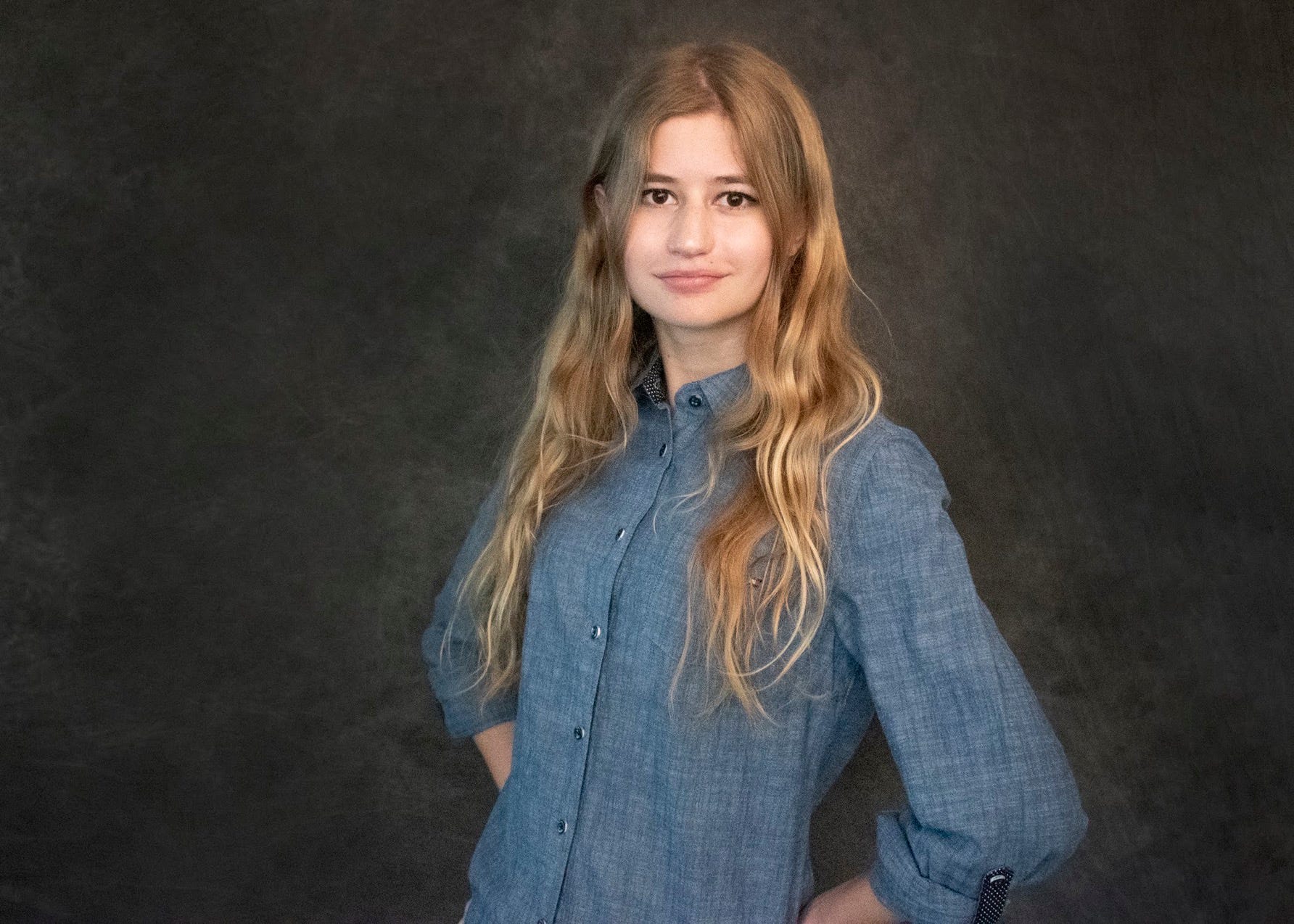
Education Foundation of Sarasota County
Paulus, who says she struggles with anxiety that only worsened from the uncertainty of the pandemic and lockdowns, turned to family and her favorite TV shows, including “Friends” and “Star Wars: The Clone Wars,” for comfort. The virtual learning environment didn’t work well for her since her phone was always next to her, and family members at home could be distracting.
For her sophomore year, some students remained in virtual learning while others, like Paulus, returned to the classroom. Teachers taught in a hybrid format to in-person and virtual students, which she says slowed the pace of instruction. When most students were back in classrooms the following year, she says she noticed a learning gap between the former virtual students and the ones who came back early.
As COVID-19 became a political issue, Paulus says it seeped into the classroom from things students would hear at home.
“You had to be very careful when you were talking about, and however you were talking about, vaccinations and everything so you don’t get isolated because of a different opinion,” she says.
Paulus, who plans to attend the University of South Florida to study advertising and management, says she likes to think she’d be on a similar academic path as she is now even without COVID-19. The only thing the pandemic took from her were experiences, she says.
“Everything was just so weird.”
– Steven Walker, Sarasota Herald-Tribune

WAIPAHU, Hawaii – Maverick Yasuda’s high school in Waipahu, Hawaii, shut down the day he turned 15. It was March 13, 2020, and COVID-19 had already enveloped his state despite it being the world’s most isolated archipelago.
Yasuda, then an ambitious, athletic freshman, took the news of a prolonged spring break as a nice surprise, an excuse to sleep in and binge-watch Netflix.
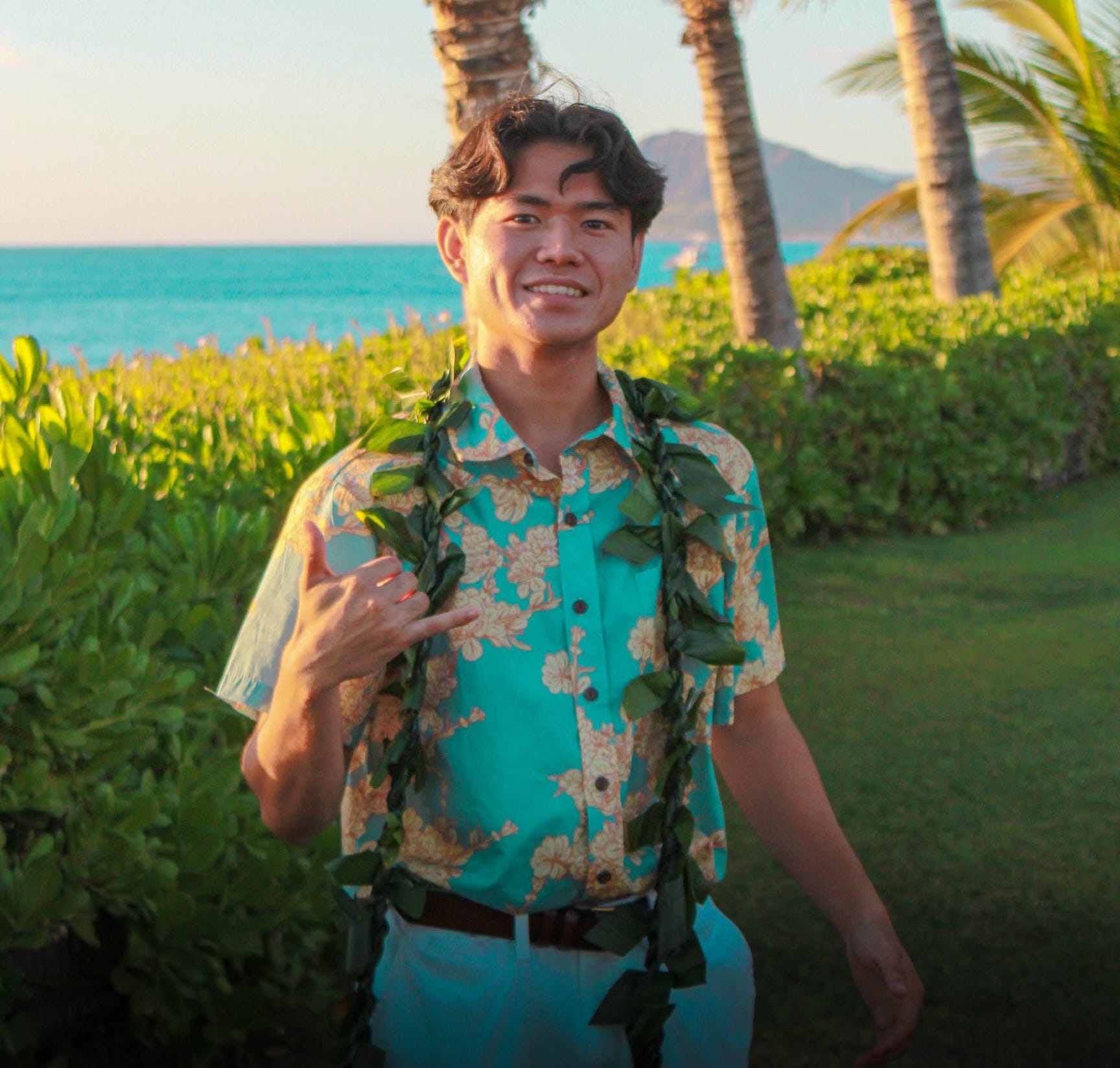
COURTESY OF MAVERICK YASUDA
But as Hawaii’s strict pandemic policies dragged on, closing schools for more than a year, Yasuda’s sense of “complacency” evolved into feelings of depression. He got little sun despite living in a onetime plantation town on the leeward side of Oahu. He stopped working out.
“I felt really empty,” Yasuda says.
As a first step to get out of his funk, he did more exercise – running a mile one day, for example, working his way up to 2 miles, then 3. He did beach cleanups with his father and two sisters and painted over graffiti in their neighborhood. He volunteered as a campus tour guide his junior year, eventually joining the state’s school board and the U.S. Senate Youth Program.
“I went from just expecting to live another day … to now appreciating every second of it,” says Yasuda, who’s now 18.
He appreciates Hawaii’s natural environment even more now, too, especially after all the time he spent preserving it in the latter half of the pandemic. He hopes to one day help preserve it as a local politician.
But first: college on the mainland. This fall, Yasuda – Waipahu High’s class valedictorian – will become the first student from the low-income school to attend Harvard in Massachusetts.
He has little doubt he’ll make time to enjoy the outdoors while in college.
The only thing he worries about is what to wear when it’s cold.
– Alia Wong, USA TODAY

JENSEN BEACH, Fla. – Juan Torres was still learning English when he arrived at Jensen Beach High School in 2020, just a month before the pandemic.
His family had moved to Florida from Venezuela. Torres, now 18, was eager to learn English in an unfamiliar school system. But once COVID hit, Florida kept schools closed for the remainder of the school year.
He wasn’t ready for that.
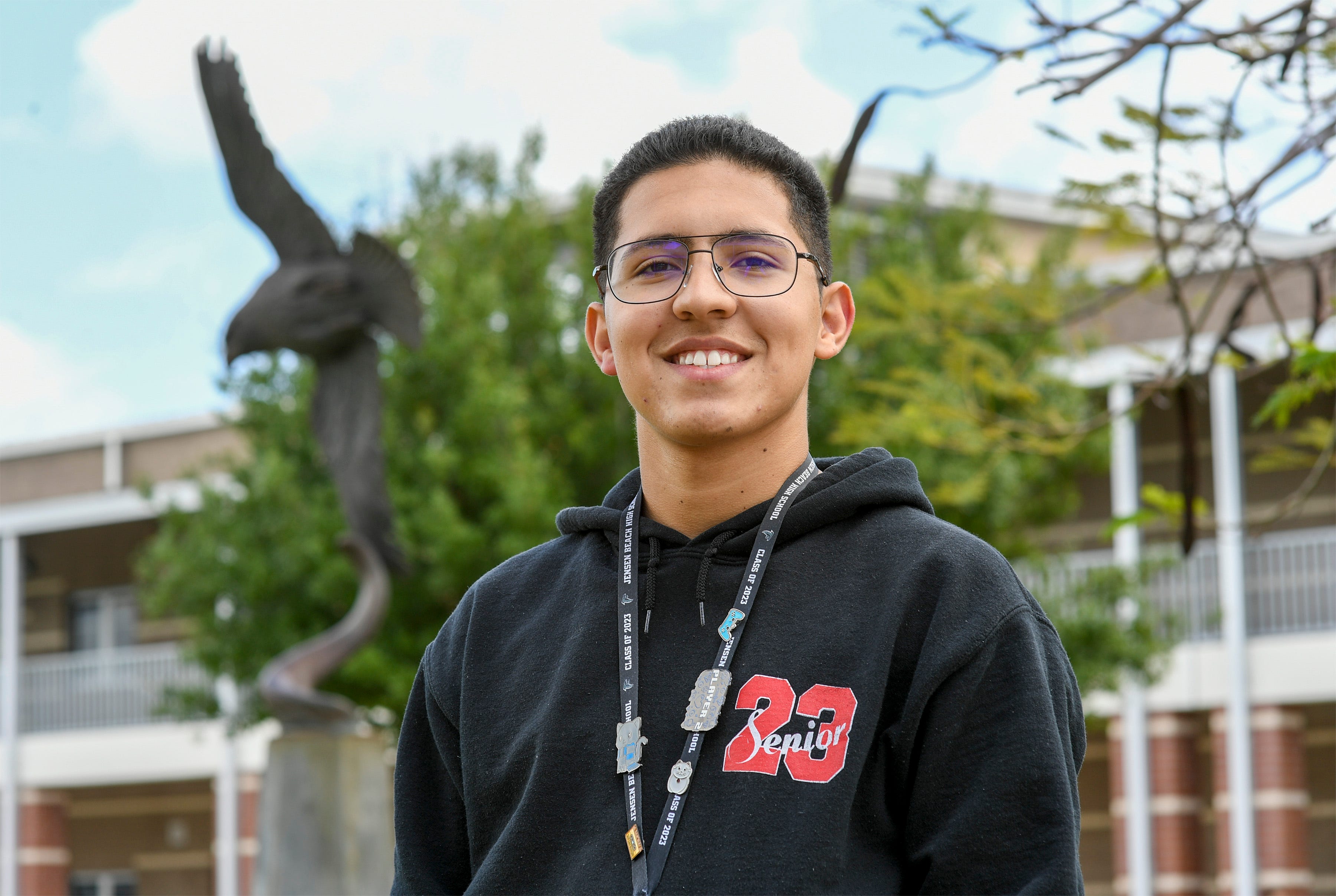
ERIC HASERT/TCPALM
“The school completely shut down. And with my barely learned English in that moment, I had to deal with online classes,” Torres says.
The technology was new. The language was new. The combination left him almost entirely unable to participate or learn.
When the chance for in-person classes resumed sophomore year, Torres signed up immediately, even though COVID remained a threat.
“I knew if I really wanted to learn English, I really needed to be here every single day,” Torres says.
Even face-to-face, every interaction was demanding.
“I didn’t know how to start conversations. It was confusing how to use words,” Torres says.
With one friend who didn’t speak Spanish, he says, “it was awkward. Every time he said, ‘Hey, how are you?’ I was like, ‘Hey, wait, let me get a translator.’ “
He also leaned on texts and Microsoft Word documents to show his teachers what he was trying to say, instead of trying to say the words. Sometimes, he just showed them his screen.
Still, he earned every credit he needed for his diploma and by senior year, was taking classes at nearby Indian River State College. It’s where he’s headed after graduation to study business.
“This is a milestone for me,” says Torres, who says he is proud of his accomplishments. “It hits me differently every time I think about it.”
– Colleen Wixon, Treasure Coast Newspapers

VENTURA, Calif. – Israel Rosete-Melendez was feeling alone.
When the pandemic closed schools in 2020, Dorothy Boswell School in Ventura County shut down, too.
Boswell is designed to help people with intellectual disabilities, like Rosete-Melendez, become independent, and students can attend until they turn 22. It has washing machines, a kitchen and a garden. Students spend a few hours of each class day working shifts at nearby businesses to build job skills.
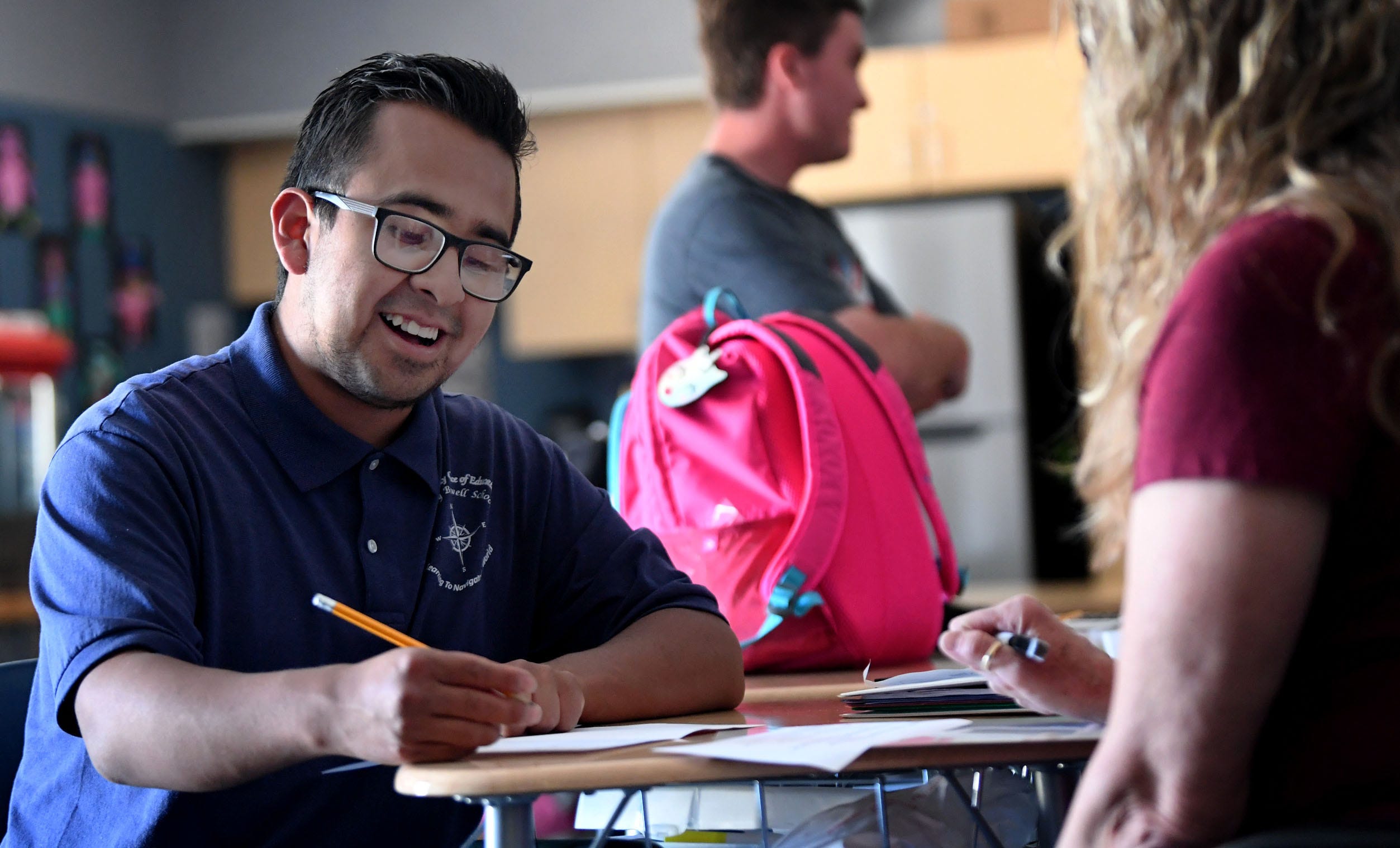
JUAN CARLO/THE STAR
The pandemic closed it all.
Without the benefits of tools like a classroom banking system or a teacher standing by to help craft a tricky sentence, Rosete-Melendez struggled.
“You’re in your room with your computer and you’re like, ‘What do I do?’” says Rosete-Melendez, 21.
Pandemic school closures were a particular challenge for students with intellectual disabilities, who typically have highly customized education plans that don’t easily translate into virtual schooling. Online classes sometimes forced parents to jump in as de facto one-on-one aides for their children.
Although he doesn’t need such an aide, his guardian says, he struggled without in-person interaction and lost some of the skills he had learned.
“He’s still rebounding a little bit,” says Marilyn Johnson, 71.
Eventually, Boswell reopened, and now, Rosete-Melendez is set to graduate with a certificate of completion.
– Isaiah Murtaugh, Ventura County Star

SAN JOSE, Calif. – More than three years after she logged on to one of her first high school classes at home freshman year, Alondra Patino Sanchez looked out at her friends seated on the Overfelt High School football field.

Courtesy of Alondra Patino Sanchez
“We went through our social distance era, our sleeping-on-the-computers-during-class era, and our back-to-adapting era,” Patino Sanchez, president of her senior class, told them during her graduation day speech. “As far away as it sounds it was, it was a part of our years taken from us.”
“We have now proved to ourselves, and to everyone, we indeed were able to make it,” she says.
Getting to that graduation stage after experiencing the turmoil during the pandemic was difficult. Patino Sanchez says online school didn’t prepare her for in-person classes junior year. Many teachers marked students in class even when they turned their video cameras off and didn’t assign homework, and she felt they “dumbed down” their expectations.
Despite the academic setbacks, Patino Sanchez, 18, says she will attend California State University, East Bay, in the fall, where she plans to study nursing.
She says she’s “not fully, but maybe somewhat” prepared for college, and her classmates, she says, are even further behind. Some of their social worlds shrank: They stuck with old friends and made few new ones as they might have before the pandemic. Others lacked motivation to catch up on the lessons they fell behind on.
School staff at Overfelt tried their best to help kids catch up, Patino Sanchez says, but she believes the pandemic disruptions will stain her class for a long time to come.
“We didn’t get to fully experience high school,” she says. “Coming in from middle school, it feels like we went in as kids and when we were expected to be adults. It felt like time stopped.”
– Kayla Jimenez, USA TODAY

APPLETON, Wis. – As a biracial young woman, Mya Koffie says there’s a “big lack of understanding” on how traumatic the summer George Floyd was murdered was for people of color.
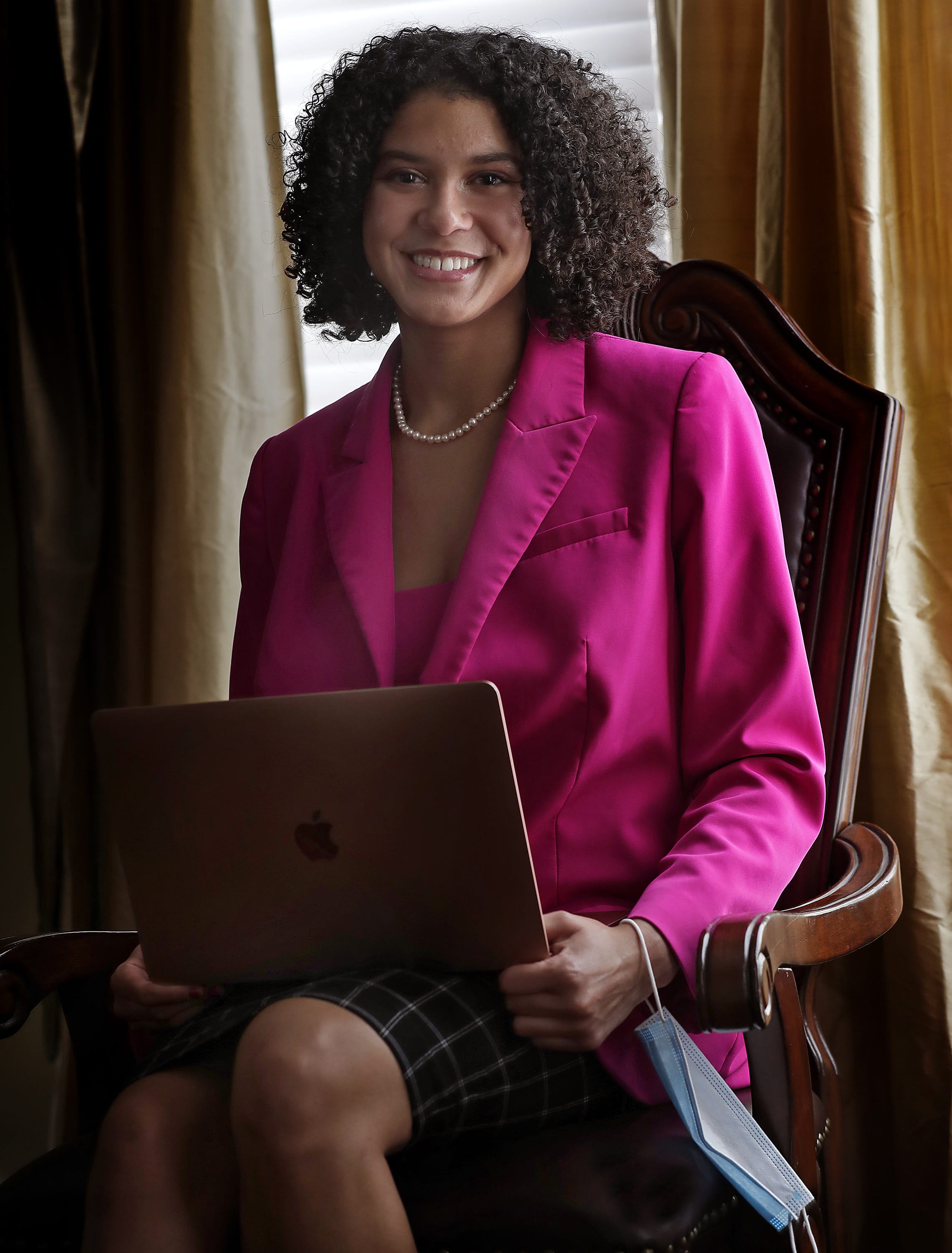
Wm. Glasheen USA TODAY NETWORK-Wisconsin
It was right after her freshman year of high school, already marred by the onset of COVID, and Koffie, 18, had to remove herself from social media. Every time she scrolled, she was confronted with images of brutality against people that look like her family.
“For a lot of teenagers, social media is a mechanism of escape, and that sense of escapism was stolen away from me that summer,” she says.
She remembers crying one day and being unable to stop. Though she says it was “tragic” to be inundated with images of violence, it ignited a desire to speak up and be involved.
For her sophomore year, her father’s job moved her family to Arizona. The pandemic was still roaring, but she went to school in person with everyone masked. She never saw the full faces of her classmates and teachers. It was bizarre, she says, but it also fostered a “deep appreciation for humanity” later in high school.
That year she joined a nonprofit dedicated to mobilizing youth voices and began writing social justice poetry. It was a way to cope with the trauma of the summer before.
Another move brought her to Appleton North High School in Wisconsin for her final years of high school. That’s where she started a poetry club and organized social justice poetry showcases each year.
Her poetry, she says, “is the way I voice what needs to be said.”
– AnnMarie Hilton, The Post-Crescent

LYNNWOOD, Wash. – One morning late last summer, Nicole Figueroa walked to Meadowdale High School in Lynnwood, Washington, and asked if she could enroll.
Figueroa hadn’t been inside of a school building since before the pandemic. She tried home-schooling as a ninth grader, four years earlier, hoping it would curb her anxiety. But by the time she discovered working solo only made her more anxious and entirely unproductive, it was too late.
COVID had shuttered schools.
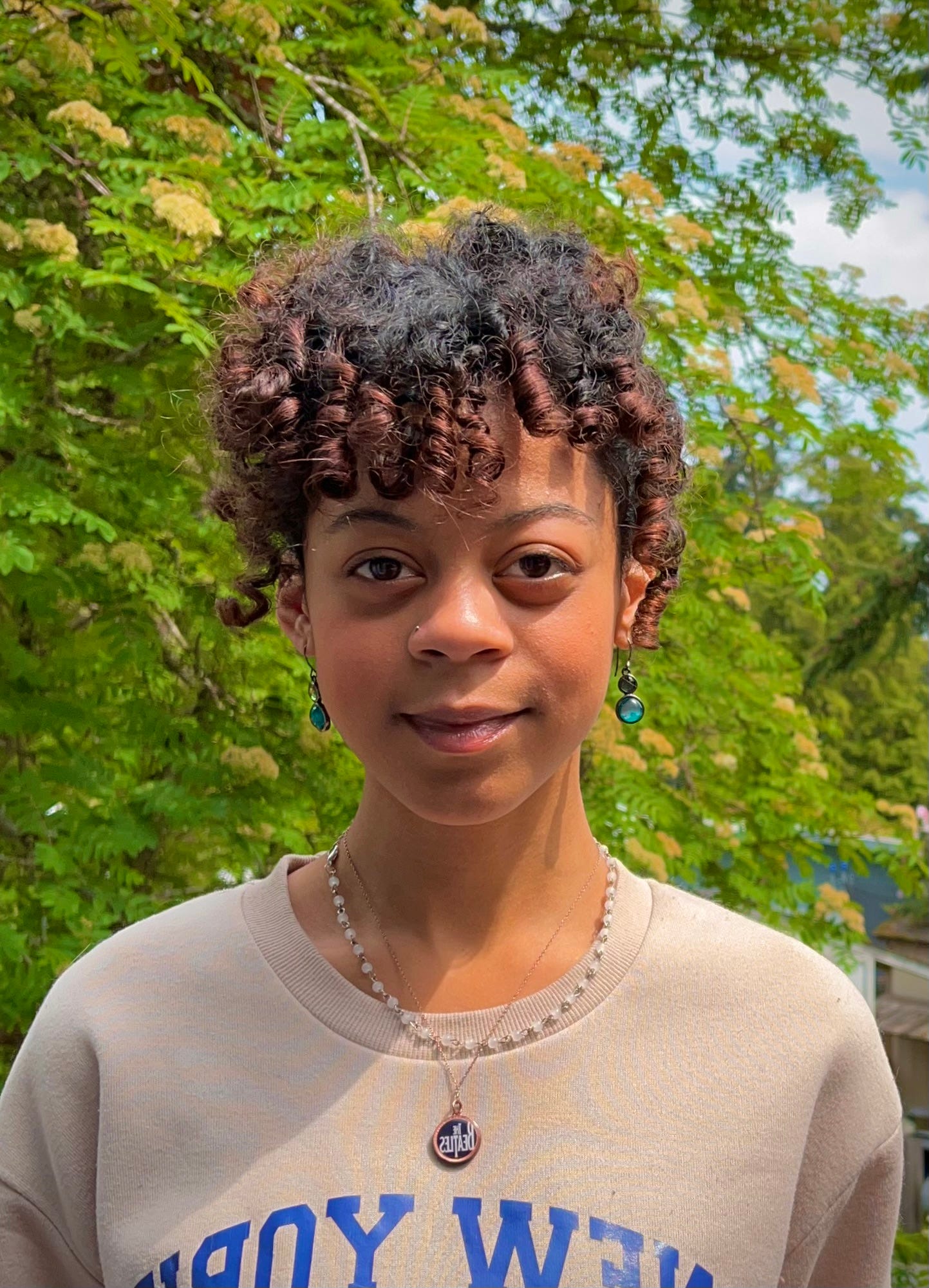
Nicole Figueroa
With no in-person version of school available, she quit school altogether.
Figueroa, 18, toyed with getting her GED but never did. She dabbled in some community college classes – largely online – which reinforced that she needed the rhythm of school, the accountability, to get anything done.
Then came that morning last August. She thought about going back to school and how she had lost the ability to work with other people and communicate well.
“The root of anxiety is thinking about things too much – ‘Am I going to regret this?’” Figueroa says, describing what often runs through her mind before she takes action.
So she woke up, tried not to overthink it, and started walking toward the high school.
But then on the first day of school, seniors gathered on the football field to watch the sunrise. Figueroa was sure old middle school classmates would remember her.
They didn’t.
“How do you know my name?” one asked when she approached them to chat.
“I don’t even remember seeing the sunrise,” Figueroa says. “I was just really awkward and by myself.”
She found her way around school anyway. She pushed through online courses – intended to help her make up for many missing credits – getting through them, she says, because she was taking them in a classroom, on campus.
“That’s just proof that I needed to be in school,” she says.
Now, she has a navy blue cap and gown. And she’s ready to take another walk.
– Nirvi Shah, USA TODAY